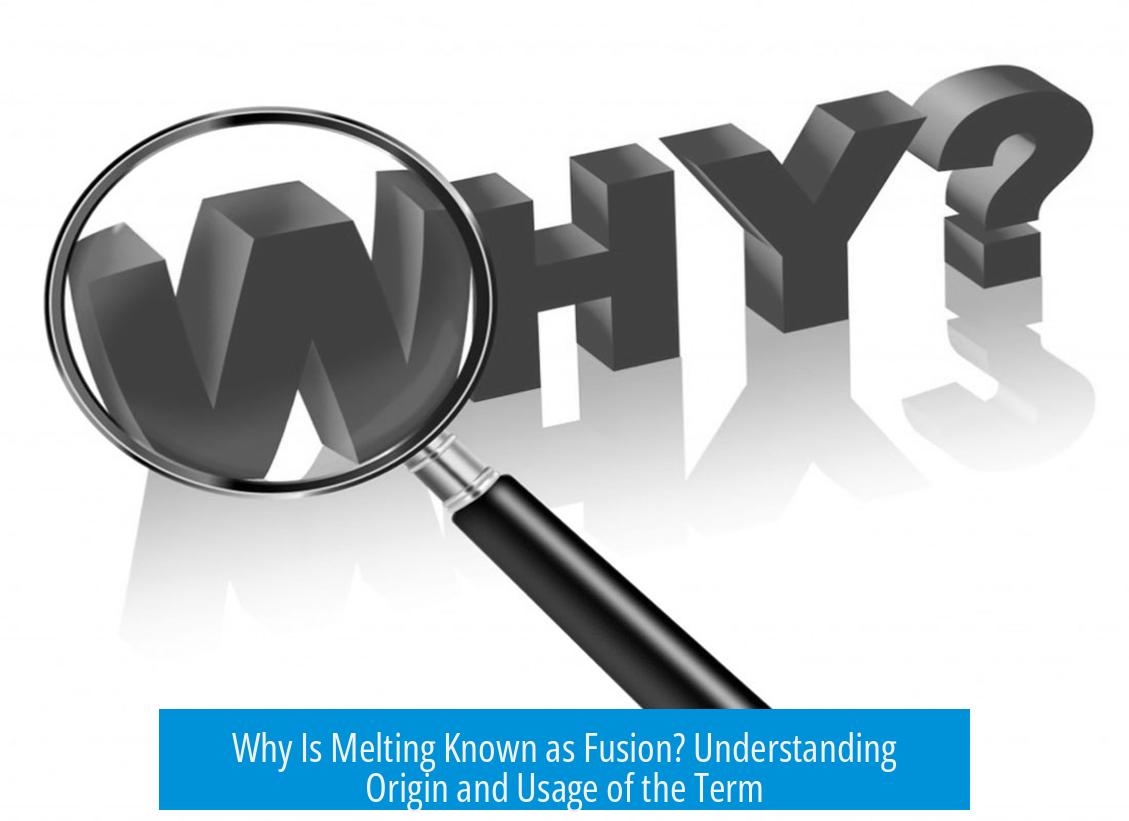Why Is Melting Called Fusion?
Melting is called fusion because the term “fusion” originally means “to melt,” deriving from the Latin verb fundere, meaning “to pour” or “to melt.” This origin explains why scientists sometimes use “fusion” to describe the change of a solid to liquid.
Origin of the Term “Fusion”
The word “fusion” comes from Latin, specifically from fusio (noun) and fundere (verb), which mean “to melt” or “to pour.” Many Romance languages retain this root, for example:
- Spanish: fundir
- French: fondre
This historical linguistic background connects fusion directly to the melting process.
Historical Usage of “Fusion” as a Melting Synonym
English used “fusion” as a synonym for “melting” since the 1500s, long before atomic theory existed. The term described the physical process where solid materials become liquid by heating.
Difference Between “Melting” and “Fusion”
While “fusion” is Latin-rooted, “melting” stems from Germanic languages, possibly entering English through Old Norse. This explains why both terms coexist but come from different linguistic origins.
Metaphorical and Scientific Uses of “Fusion”
Fusion also describes the intimate combination of materials into one, such as melting two metals to form an alloy. Later, with discoveries in nuclear physics, “fusion” described the merging of atomic nuclei.
Physically, fusion recalls how solids melt and join into a homogeneous mass, reinforcing its meaning.
Modern Usage Considerations
In English, “fusion” is a broader term and can imply different processes beyond melting. For example, “sodium fusion” in chemical analysis refers to a chemical reaction, not merely melting.
Thermodynamics specialists sometimes call melting “fusion” technically, but general usage prefers “melting” to avoid confusion.
Summary of Key Points
- “Fusion” means melting, derived from Latin fundere.
- English used “fusion” as a melting synonym since the 1500s.
- “Melting” has Germanic origin, distinct from fusion.
- Fusion also means combining materials, including nuclear fusion.
- Modern use prefers “melting” except in technical or metaphorical contexts.
What is the origin of the term “fusion” in relation to melting?
The term “fusion” comes from the Latin word *fusio*, meaning “to melt.” Many Romance languages use related words like *fundir* in Spanish and *fondre* in French to express melting.
Why was “fusion” historically used as a synonym for melting?
Since the 1500s, English speakers used “fusion” to mean melting long before atomic theory emerged. The term described the physical process of solid materials turning into liquid.
How does “fusion” differ from “melting” in terms of language origin?
“Fusion” has Latin roots linked to melting. In contrast, “melting” comes from Germanic origins, possibly passing through Old Norse.
Why is the term “fusion” sometimes avoided when referring to melting?
“Fusion” is a broader term. It can mean chemical reactions or processes beyond melting. For example, “sodium fusion” is a reaction, not just melting.
Is “fusion” still used technically to describe melting?
Yes. In thermodynamics, “fusion” refers technically to melting, reflecting its Latin origin. However, outside this field, it’s rarely used in that sense.





Leave a Comment